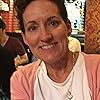S.S. Julian
asked
Sara Gruen:
What is your research process like, and how do you check your work for historical accuracy? Can you describe an instance when you decided, for dramatic or plot purposes, it was better to overlook historical precedent?
Sara Gruen
Research is one of my very favorite parts of the writing process. It’s also why you’ll never see me set a book in Sudbury, Ontario, in the middle of winter!
I love that I can find something that fascinates me--and that I hope will fascinate others--and immerse myself in it until I feel I know it well enough to write not just about it but from within it, if that makes sense. I have to create a fictional world in my head that I pass into when I'm writing, and because I also hope to transport readers there, all the details have to be in place. Although I no longer enter the world of "At the Water's Edge" to write, I still know every cobweb in the Fraser Arms, every floorboard that creaks, the earthy, oppressive smell of the Anderson Shelter.
I incorporate real incidents into my novels all the time. It's the interesting little nuggets I've never heard of that fascinate me the most, and I think readers like taking away odd little bits of knowledge as well. It's also true that when I'm blending fact with fiction, sometimes the lines do blur. If I want to include something historical that almost works but not quite, I remind myself that I’m a novelist and can take a little creative license. For example, in “At the Water’s Edge,” I incorporated every Nessie sighting that happened up to the time of the novel, and reimagined the most famous one, the “Surgeon’s Photo,” as the Colonel’s photo in my book. I also incorporated a few wartime incidents, like the Royal Observer Corps sighting of the monster and the bombing in Foyers, although in both cases I changed the year.
I’m very careful about accuracy, and during my initial research make contacts with museums, historians, and others so I can ask questions and verify things that come up as I'm writing the story. I also have a point person to read the final text for accuracy. I can’t say history was my thing in school, because it seemed dry and somehow disconnected from real life, but now that I’m learning about it by unearthing WWII installations, unwittingly tromping around among undetonated 70-year-old bombs, and crawling under abandoned circus wagons, it feels very much alive!
I love that I can find something that fascinates me--and that I hope will fascinate others--and immerse myself in it until I feel I know it well enough to write not just about it but from within it, if that makes sense. I have to create a fictional world in my head that I pass into when I'm writing, and because I also hope to transport readers there, all the details have to be in place. Although I no longer enter the world of "At the Water's Edge" to write, I still know every cobweb in the Fraser Arms, every floorboard that creaks, the earthy, oppressive smell of the Anderson Shelter.
I incorporate real incidents into my novels all the time. It's the interesting little nuggets I've never heard of that fascinate me the most, and I think readers like taking away odd little bits of knowledge as well. It's also true that when I'm blending fact with fiction, sometimes the lines do blur. If I want to include something historical that almost works but not quite, I remind myself that I’m a novelist and can take a little creative license. For example, in “At the Water’s Edge,” I incorporated every Nessie sighting that happened up to the time of the novel, and reimagined the most famous one, the “Surgeon’s Photo,” as the Colonel’s photo in my book. I also incorporated a few wartime incidents, like the Royal Observer Corps sighting of the monster and the bombing in Foyers, although in both cases I changed the year.
I’m very careful about accuracy, and during my initial research make contacts with museums, historians, and others so I can ask questions and verify things that come up as I'm writing the story. I also have a point person to read the final text for accuracy. I can’t say history was my thing in school, because it seemed dry and somehow disconnected from real life, but now that I’m learning about it by unearthing WWII installations, unwittingly tromping around among undetonated 70-year-old bombs, and crawling under abandoned circus wagons, it feels very much alive!
More Answered Questions
Sara Gruen
7,020 followers
About Goodreads Q&A
Ask and answer questions about books!
You can pose questions to the Goodreads community with Reader Q&A, or ask your favorite author a question with Ask the Author.
See Featured Authors Answering Questions
Learn more






Aug 04, 2015 01:18PM · flag
Apr 26, 2019 11:08AM · flag